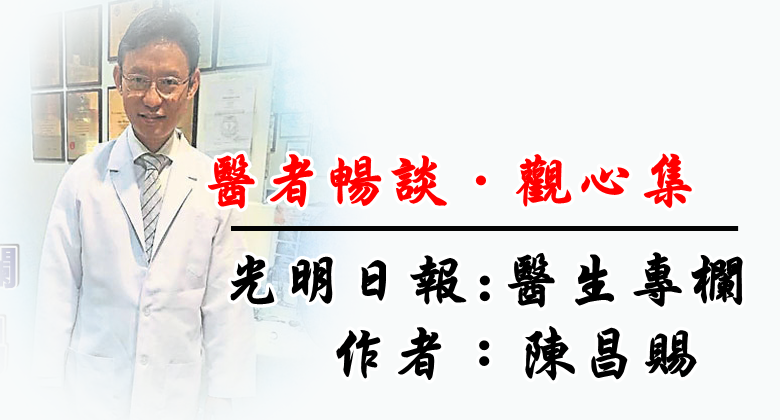Living in a safe environment helps recover and accompany family members out of the emotional black hole

(Hong Kong) Mental illness is a condition caused by a series of physical, psychological and social factors.
Physiological factors include genetic factors, body inflammation, etc.; psychological aspects include cognitive processes, emotional regulation ability, self-esteem, personality traits, etc.; social factors include growth background, interpersonal relationships, family environment, neighbor relationships, etc.
Receive professional support in a timely manner
It can be seen that recovery also requires support and care from many aspects. Patients can choose to receive professional support such as doctors, social workers or psychologists when appropriate. Numerous studies have shown that medication or psychotherapy can help. In addition to professional treatment, it is more ideal to recover from the continuous stressful environment beyond the individual’s ability to allow patients to live in an environment where they feel safe physically and mentally.
As a family member, partner or friend, they play a very critical role in the lives of people with emotional distress.
While love and caring are essential to the recovery journey from mental distress, there are coping strategies and caregiving skills that companions can learn and master.
As someone close to someone with a mental illness,
What can we do?
What do we need to pay attention to ourselves?
First, your own safety and self-care
(self-care) is the primary consideration.
Although the vast majority of emotionally ill patients do not harm others (the rate of harming themselves is often higher than that of others), as close contacts, we must also look forward and backward, carefully assess risks, and consider each other’s safety. For example, if the husband is emotionally ill, has a bad temper and often scolds others, the wife has to consider whether the young children will be affected; and how to minimize the impact on the children while taking care of the husband’s feelings. As for safety issues, if there are indeed potential risks, or even irreparable regrets may occur, you must seek help as soon as possible and consult professionals.
Take care of your emotions clearly
As the people around you, your own emotional care is especially important. If your own emotions are not stable, you cannot tolerate and accept the other person’s emotional ups and downs, and even family wars are on the verge of breaking out, which is of no benefit to anyone.
We will suggest to learn “mindfulness”, to take care of your own emotions clearly and clearly, and to observe the emotions of the other party truthfully. Thich Nhat Hanh’s “You Can Not Be Angry” is a highly recommended book that tells us how to take care of our own and the other person’s emotions.
People with emotional illness around them may have incomprehensible rage, or unreasonable depression, anxiety, or panic. Such emotional turmoil is scary, but at the root of it can be pain, misunderstanding, or unmet needs.
As people around us, we must first remember that there are reasons and meanings behind emotions and behaviors, so that we can deeply understand the needs behind the other person’s emotions, and not react with hatred or disgust.
If we have the strength and ability, we can try to understand these needs, so that we are more likely to help patients; if we can’t, we can at least take care of our emotions first, establish clear boundaries in interpersonal relationships, and deal with difficult problems calmly, all of which will also serve as examples , and become a role model for the other party.
In fact, many emotionally ill patients grew up in pain in childhood, lacking parental love and teaching, so they don’t know how to take care of their emotions, and they don’t know how to resolve interpersonal conflicts, so the role models of those around them are especially important.
There is nothing wrong with choosing to leave the patient
Another point is determination. When you find out that your partner is suffering from emotional illness and is tangled and troubled because you don’t know how to deal with it, whether you consider leaving or want to stay and help, it is all human. If you don’t have the confidence or ability to deal with it (for example, you also grew up with trauma, or lack emotional regulation), or have other concerns, there is nothing wrong with deciding to leave.
However, if you choose to stay, it will be of great help to your partner’s recovery; but you must be mentally prepared that this road will not be easy. Patient companionship and warm love will definitely make the partner who is suffering from spiritual pain or mental distress feel that he is not alone and even see hope. The healing effect of being accompanied by relatives and friends even surpasses the intervention of a single professional.
Because whether it is a psychiatrist, a social worker, or a counselor, the treatment intervention time is limited; but as a partner, get along with the patient day and night, experience many small moments in life together, and share inner joy and sorrow together.
There are many opportunities to reach out and let patients know that they have someone to support them, that they can safely speak up when they feel emotional, and that others can calmly solve problems like this.

 Childhood shadow + work pressure uncontrolled rage
Childhood shadow + work pressure uncontrolled rage
Case 01
Ching Yee and Ah Ming met at school and have been dating for a year.
When A Ming just graduated, he couldn’t find a job for a long time, and he often faced sarcastic remarks from his family. Jingyi knew that Ah Ming was emotionally disturbed, occasionally suffered from insomnia, easily blamed himself, and sometimes used alcohol to soothe his sorrows and even got drunk. In addition, he was always afraid of having dinner with his family.
Accompany the other person to understand their own situation
Soon, Amin’s condition became more and more serious, and his temper sometimes became irritable. Although he would apologize afterwards, Ah Ming sometimes gets too angry and even blames Jingyi and tells her to ignore him. Amin would also dream of his mother’s scolding, and even wake up in the middle of the night.
Jingyi was very worried and wanted to accompany Amin to see a doctor or seek psychological counseling, but Amin was reluctant and refused to agree.
Later, Amin finally found a job, but the work pressure made him miserable. His boss often scolded him, which made him feel like returning to the childhood when he was often abused by his mother. Gradually, his mood went from bad to worse, and when he was serious, he even tried to hurt himself.
For this, Jingyi was heartbroken and helpless, not knowing what to do to help her boyfriend get out of his emotional slump.
In fact, Jingyi needs to consider her own situation first, and take good care of her emotions and feelings. On the other hand, if Jingyi is willing, she can slowly try to understand what needs are reflected behind Amin’s emotions.
For example, the reason why Amin often had nightmares and saw his mother scolding himself may be because the painful emotions of being scolded in childhood were not taken care of and dealt with; sometimes Amin suddenly loses his temper and is out of control, it may be because of certain triggers (triggers) ), which makes him unconsciously evoke unpleasant emotions and physical and mental reactions before, and make a reflexive defense mechanism.
Of course, as companions, we must remain modest, not to blindly speculate on the reasons for each behavior, but to accompany the other person to gradually understand their own situation and embark on the road of improvement and growth.
Rebuild a safe environment to reduce harm
Jingyi can encourage Amin to seek professional advice, or she can consult a social worker when she feels stressed or does not know what to do. One more resource and one more support will benefit both of them.
Finally, Jingyi can communicate well with Ah Ming and find a way to avoid unnecessary pressure together. For example, if the mother continues to speak ill at each other and seriously affects Ah Ming’s physical and mental health, keeping a proper distance may help Ah Ming recover and rebuild safety. environment, and reducing further harm is the first step in psychological recovery.
Indeed, the road to recovery is not easy, but if Jingyi is willing, she can definitely play an important role as a companion. This kind of support and companionship will not only be of great help to Amin’s road to recovery, but the mutual support and persistence in difficult situations will also make the relationship between each other stronger. new.
Text Feng Kanghong (postdoctoral researcher, Department of Social Work, Hong Kong Baptist University), Cui Jialiang (Assistant Professor, Department of Social Work, Chinese University of Hong Kong)

![[Love Wants Sexual Happiness Series 358]Find the culprit and overcome psychogenic erectile dysfunction. Don’t let pressure affect your sexual happiness. [Love Wants Sexual Happiness Series 358]Find the culprit and overcome psychogenic erectile dysfunction. Don’t let pressure affect your sexual happiness.](https://webcdn.guangming.com.my/wp-content/uploads/2024/04/171111-780x420.jpg)

![[Wanqingyi Care]My health, my rights, customized medical methods in the last stage of life [Wanqingyi Care]My health, my rights, customized medical methods in the last stage of life](https://webcdn.guangming.com.my/wp-content/uploads/2024/04/ZZ1-100-780x420.jpg)
![[Kidney Transplantation Special Topic]The survival rate of transplanted kidneys is high without dialysis treatment three times a week [Kidney Transplantation Special Topic]The survival rate of transplanted kidneys is high without dialysis treatment three times a week](https://webcdn.guangming.com.my/wp-content/uploads/2024/04/1311-780x420.jpg)



